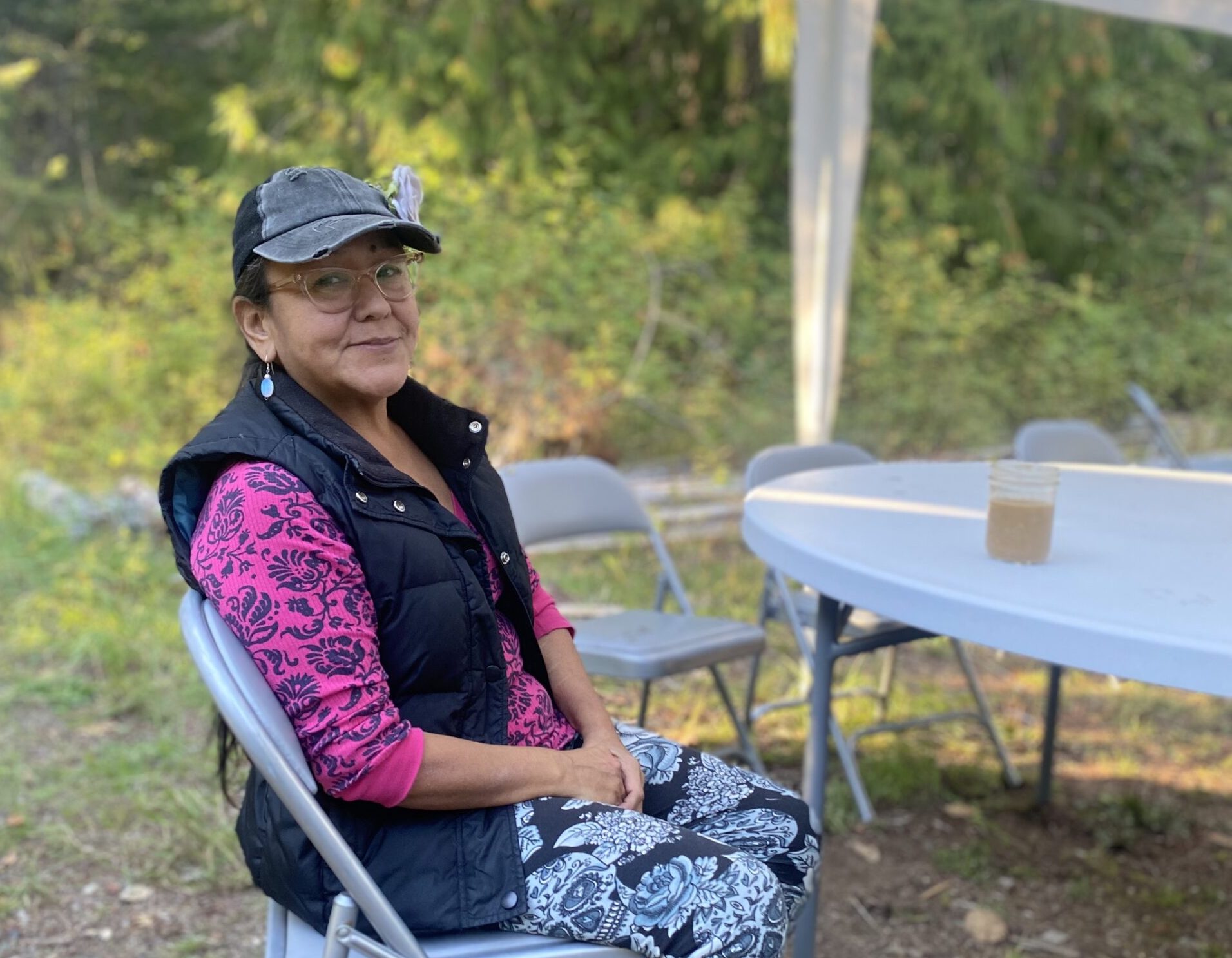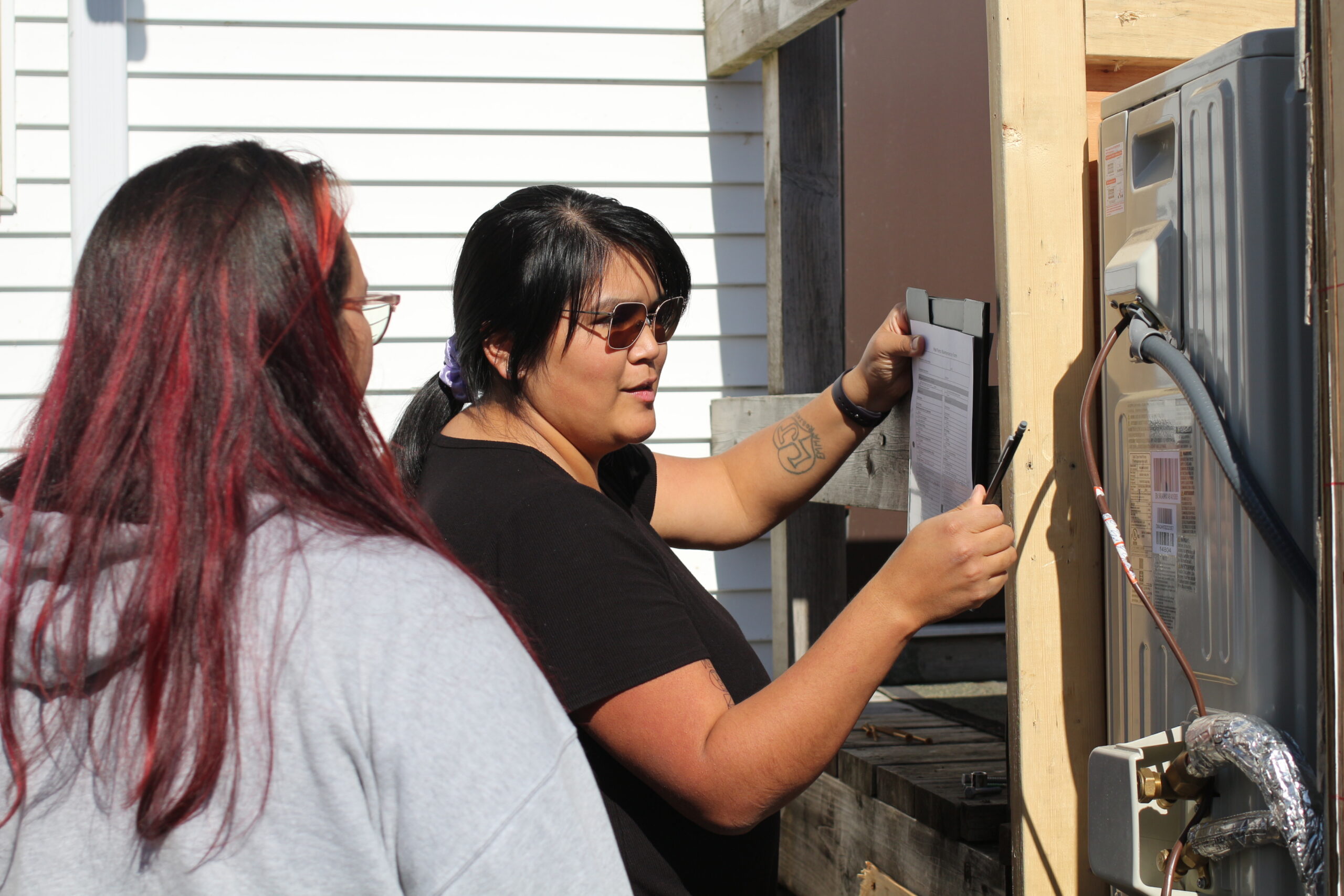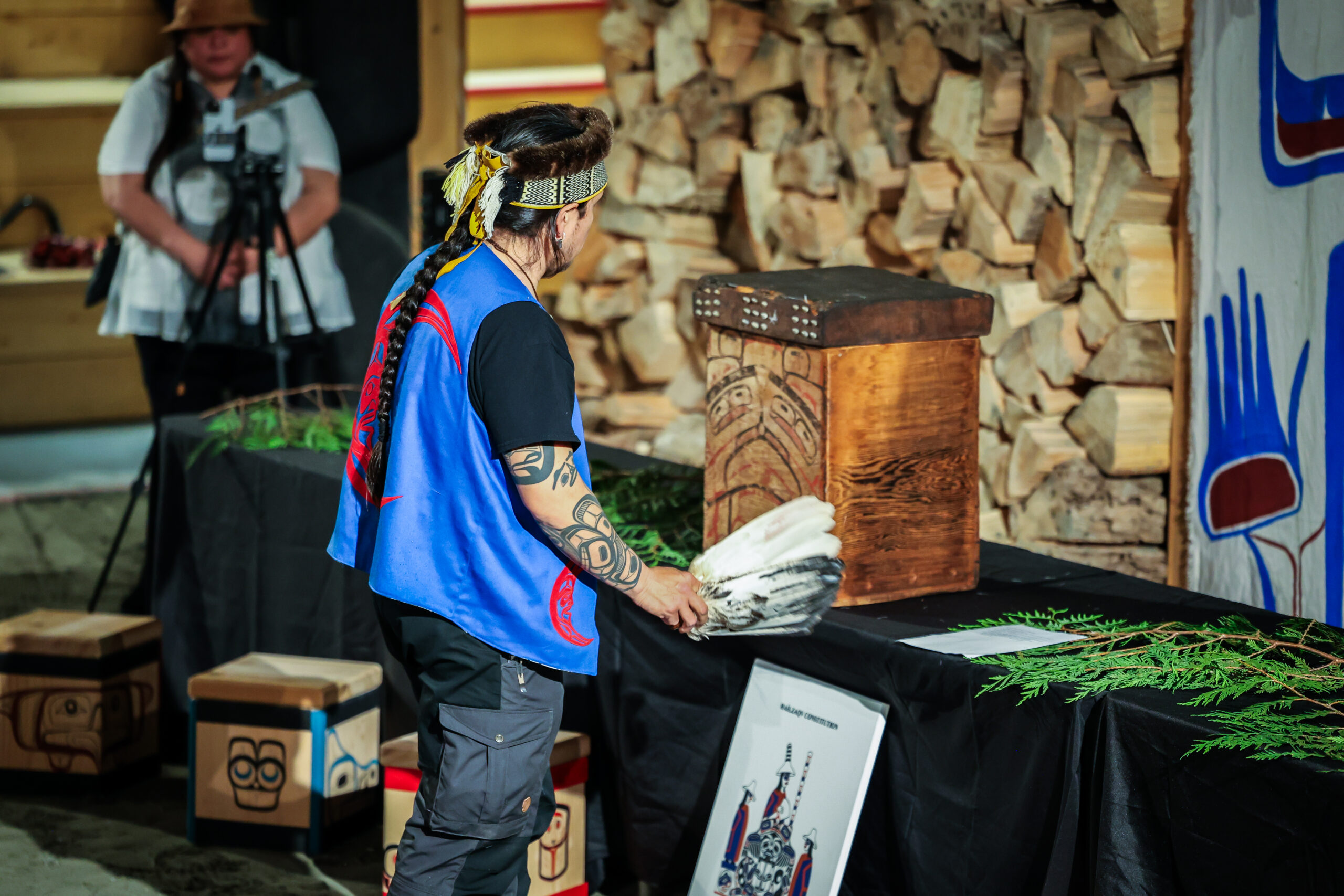Qway Renata Schooner is a member of the Nuxalk Nation. She grew up back and forth between Vancouver and Bella Coola, she says, sipping a coffee while keeping an eye on her grandchildren during a Stutu7apsulh community gathering at Nusq’lst village in September.
A related family has been building a cabin in Nusq’lst village, as they make the move home, and they held a community gathering to update everyone on the work being done and what it means for them. Renata went to the gathering, bringing her family. She was interested in hearing about the work being done for Nuxalk members to return to their ancestral place at the Nusq’lst village. It’s where her dad comes from, she says.
“Everyone has been getting familiar with where we’re from, where our family descends from, getting more familiar with our territory. We heard there were people building here, and we’re from here, so we decided we too needed to show ourselves,” she says.
Qway says her learning journey, learning about her people’s history, her culture, the significance of her own name, has been a lifelong one. She’s a “hypersensitive” person, she says, she picks up a lot of detail, stores a lot of information, and has been an observer throughout her life.
“I noticed a lot growing up…seeing the injustices, observing people and their behaviours all the time, so when I start to reflect back, I understand more,” she says. “In my early 20s, I started learning about the forced segregation, residential schools, and what our people have endured.”
Qway says her people lived broadly throughout their territories and that they weren’t meant to be stuck to one place, which is what the reserve system aimed to do.
“We were meant to move around and go places, do things, see things. Our people are hurt, so hurt that we’re hurting each other,” she says. “I started seeing how lateral violence impacts our people, what impacts draw us away from our culture, and that connection we have with the land and our history.”
There is strength and power in knowledge, and all of the systems that pulled Indigenous Peoples away from their ways had devastating impacts and Qway says she was no exception.
“I too got lost in all of it, going to the city thinking it was the best place to go. Just trying to find myself. Then eventually, it was like, no, I have to go back home, I have to go back to Bella Coola,” she says. “I feel like I’m coming full circle.”
As she went “back and forth, back and forth, back and forth” she started to understand the impacts of displacement, she says, “the impacts of residential schools, the shame, the lateral violence.”
Qway says she has come to understand that she wouldn’t be here today if it weren’t for the strength of her ancestors.
“If it weren’t for those ancestors that prayed for us and sought that healing and did the best they could to keep what we were supposed to keep hushed — the culture, the singing, dancing, the people who went underground with it all,” she says.
Qway says she left her community to heal and bring healing back.
“When you do your healing, what you do for you, the children benefit from that,” she says. “Out of this self-decolonization of my own mind, my own emotions, the healing… I started remembering that there was a time we could live on this land, and we still do, that this is our right as Nuxalk people, our ancestors showed us the way, helped us live.”
When Qway was just a toddler, about two years old, she would be called to go and sit with an Elder in the community, she remembers.
“There was an Elder lady, she was a part of the Edgar family and she always got her grandchildren to look for me. ‘Go and look for Qway and tell her to come for tea and biscuits,’ she would say. I had to sit with this Elder, she’d sit across from me speaking our language,” Qway says.
She didn’t eat the biscuits and she didn’t understand what was going on, she was only two, she explains, but it turned out she carried the name of the Elder’s late best friend.
“In our culture, we believe I’m this woman, reborn. I even look like her,” Qway says. She started to learn more about her name, a matriarchal name, she says, and it gave her more meaning into who she is and who she’s meant to be.
“I could feel that feeling of liberation and connection to our ancestors…but how do I convince my children, when we’ve been so colonized? It’s mind blowing…at this day and age, we’re still struggling so hard to push for truth,” she says.
But the truth is starting to surface, she says. She’s been to countless workshops, treatment, since she was 18 years old. “First Nations treatment programs, psychologists, counsellors, women support groups, everything.”
“It has been tough, being connected with my community, the displacement I experience, it’s been consistent, since growing up, the lateral violence… but now I’m back and I’m looking at things differently,” Qway says. “I see the land differently, I see the ancestors imprinted on the mountains and in the trees, I can see things I never saw when I was younger.”
Qway says she knows “there’s more coming” and she wants to do more.
“I got grandchildren I want to be here for, for them to see what I hadn’t seen, because that’s what they tried to do to us… if you don’t see your ancestors or know where you really come from, if you don’t hear or speak your language, if you’re displaced from your true roots… that’s why there are so many issues,” she says.
But the younger generations give her hope, they’re an essential part of coming full circle.


